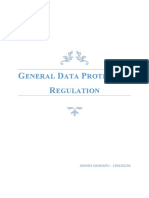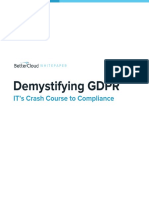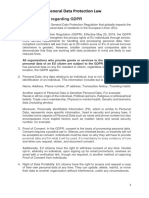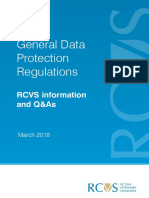0% found this document useful (0 votes)
6 views1 pageData Privacy and GDPR
Datenschutz & GDPR: Behandelt die Grundsätze und Rechte der Datenschutz‑Grundverordnung (GDPR) sowie organisatorische Pflichten bei der Verarbeitung personenbezogener Daten.
Uploaded by
dke62231Copyright
© © All Rights Reserved
We take content rights seriously. If you suspect this is your content, claim it here.
Available Formats
Download as PDF, TXT or read online on Scribd
0% found this document useful (0 votes)
6 views1 pageData Privacy and GDPR
Datenschutz & GDPR: Behandelt die Grundsätze und Rechte der Datenschutz‑Grundverordnung (GDPR) sowie organisatorische Pflichten bei der Verarbeitung personenbezogener Daten.
Uploaded by
dke62231Copyright
© © All Rights Reserved
We take content rights seriously. If you suspect this is your content, claim it here.
Available Formats
Download as PDF, TXT or read online on Scribd
/ 1
































































